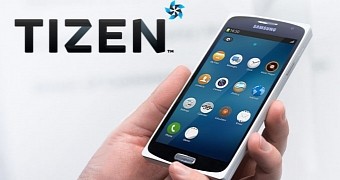A security researcher claims he has found nearly 27,000 bugs in Samsung’s Tizen operating system, revealing that although South Korean firm has already been informed about this, they rejected the findings and said an internal bug hunting program is already active.
Andrey Karpov, CTO of Program Verification Systems, starting looking for bugs in Tizen with PVS Studio, checking only 3.3 percent of the code and discovering no less than 900 issues. Though he suspended the bug searching before analyzing the full code, the researcher says that he estimates there are 27,000 errors in Tizen’s code.
“In total, I analyzed more than 2 400 000 lines of code (excluding comments). I detected 900 errors. The whole Tizen project with the third-party libraries has 72 500 000 lines of C, C++ code (excluding the comments). That means that I checked only 3.3% of the code. Estimation: (72500000 * 900/2400000 = 27187). Using PVS-Studio, we can detect and fix 27 000 errors,” the researcher explained.
Samsung: Thanks, but no thanks
Karpov says that he already contacted Samsung earlier this year to report the findings, but the team at the company refused to investigate.
“We currently have our own static analysis tool and run it regularly for Tizen. However, we don't agree with that Tizen has 27,000 defects that should be fixed,” a company official replied, even though Karpov claims he has offered to help Samsung’s engineers look into the bugs he discovered.
Samsung is yet to provide an official statement on the possibility of having so many bugs in Tizen, but some clarification should be released soon, especially because such findings raise questions as to how reliable the operating system actually is.
Samsung has pushed really hard for Tizen to become a more widely-adopted operating system, and at some point the company has even started investing in phones running it and replacing Android. The focus continues to be on Google’s OS for smartphones, though it’s no secret that Samsung keeps investing in Tizen as well, which is primarily powering wearables.

 14 DAY TRIAL //
14 DAY TRIAL //